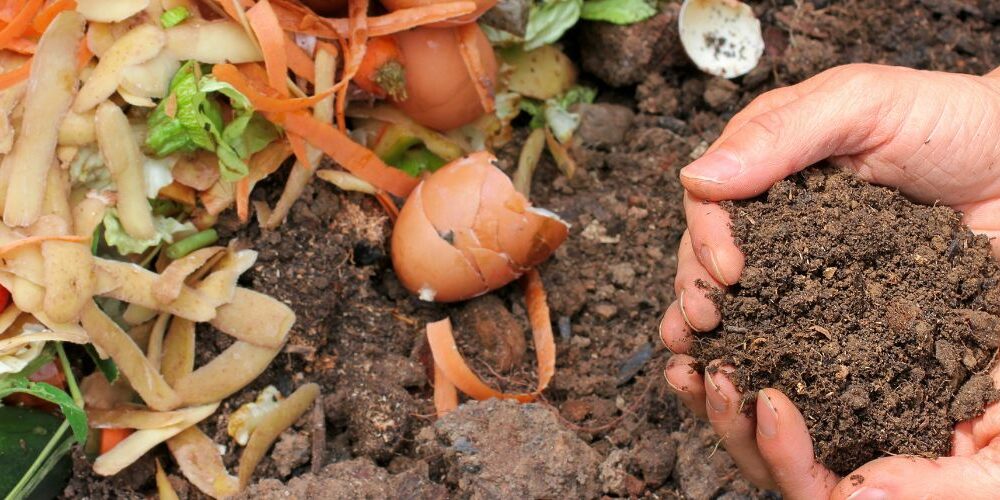The Ultimate Guide to Composting: What, Why, and How
Composting is a simple yet powerful way to manage waste, enrich your soil, and contribute to a healthier planet. Whether you’re a seasoned green thumb or a beginner curious about sustainability, here’s everything you need to know about composting—especially if you’re in Denver!
What is Composting?
Composting is the natural process of recycling organic materials, like food scraps and yard trimmings, into nutrient-rich compost. This compost can then be used to improve soil health and fertilize plants. It’s an eco-friendly way to reduce waste and minimize the greenhouse gas emissions caused by organic materials decomposing in landfills.
Why Should I Compost?
Composting is an easy process anyone can take part in to fight the effects of climate change! The process involved in composting diverts organic waste from landfills, preventing methane—a potent greenhouse gas—from being released into the atmosphere. In the U.S., food is the single most common material sent to landfills, comprising 24.1 percent of municipal solid waste. When yard trimmings, wood and paper/paperboard are added to food, these organic materials comprise 51.4 percent of municipal solid waste in landfills. (US EPA) The U.S. sent 25 million tons of food waste to landfills in 2005 — the greenhouse gas impact of composting this mass would be the equivalent of removing 7.8 million passenger cars from the road. (“How to Compost”)
Composting is vital in the fight to keep waste from landfills, but its product is also extremely useful. Compost is packed with diverse nutrients that feed plants and improve soil structure. It can enhance water retention by up to five times, conserving water and saving you money. By helping soil retain moisture, compost supports healthy ecosystems, even in drought conditions. Sure composting isn’t the only way we dispose of our food waste. However, while household garbage disposals are a common way to remove food waste from landfills, there is little to no environmental benefit to disposing of waste through our wastewater systems. Whereas composting is vastly more sustainable than using a garbage disposal. Garbage disposals use an abundance of water and can cause plumbing issues. Switching to disposing of food waste through compost overall helps us reduce our water usage. Using compost in your gardens also reduces the need for synthetic fertilizers, herbicides, and fungicides in garden or landscaping. Keeping our soil and our waterways cleaner by keeping these chemicals out of our environment. Whether you’re caring for houseplants, a garden, or a lawn, using compost helps conserve moisture and provide essential nutrients for plants to thrive.
What Can I Compost
You CAN Compost:
- Food scraps (fruit, vegetables, eggshells, coffee grounds, etc.)
- Yard trimmings (leaves, grass clippings, small branches)
You CANNOT Compost in Denver:
- Plasticware, paper products, packaging, or compostable bags. There’s too many “look-alike” items that often cause contamination, leading to compost being rejected and sent to the landfill.
Pro Tip: When in doubt, throw it out. To avoid contamination, check Denver’s Waste Directory for approved compostable items.
What Happens to My Compost?
In Denver, organic materials collected through the Denver Composts program are sent to Waste Management’s commercial composting facility. Here’s how it works:
- Grinding: Materials are broken into fine pieces by an industrial grinder.
- Composting: The organic matter is processed under controlled conditions, allowing items like meat, bones, and processed foods to decompose efficiently—something you can’t achieve in backyard composting.
- Testing: The finished compost undergoes rigorous testing by an independent lab to ensure quality before being sold.
If you already use a backyard compost bin, keep it up! But now, you can compost items like meats, dairy, grains, and excess yard waste through Denver’s collection program.
The Benefits of Buying Back Compost
Denver residents can purchase bagged and unbagged compost at discounted rates during the annual Mulch Giveaway & Compost Sale. This is a fantastic way to close the loop on your composting efforts by enriching your garden with high-quality compost made from local waste.
How Can You Compost in Denver?
Denver’s composting system is accessible to all residents—eventually. The city is rolling out green compost bins for weekly collections by Solid Waste Management.
In 2025, the city will roll out service to all remaining solid waste customers at once in the first quarter of 2025 — nine months ahead of schedule. If you’re looking on how you can participate, customers will receive letters with instructions on how to sign up. You can also go to Denvergov.org/CompostRollout to learn more.
Start Composting Today
Whether you’re joining Denver’s composting program or starting with a backyard bin, composting is an easy way to make a positive impact. By turning waste into a valuable resource, you’re helping to create a cleaner, greener, and more sustainable future for Denver and beyond.
Learn more about waste reduction and composting tips on Denver’s Waste Directory. Let’s compost for a better tomorrow!
Sources Cited:
“How to Compost.” Denvergov.org, 2023, denvergov.org/Government/Agencies-Departments-Offices/Agencies-Departments-Offices-Directory/Recycle-Compost-Trash/Compost/How-to-Compost. Accessed 13 Jan. 2025.
US EPA. “Composting.” Www.epa.gov, 13 Aug. 2015, www.epa.gov/sustainable-management-food/composting.



 Discovering the Spirit of the West: Greenway Leadership Corps Takes on the National Western Stock Show
Discovering the Spirit of the West: Greenway Leadership Corps Takes on the National Western Stock Show